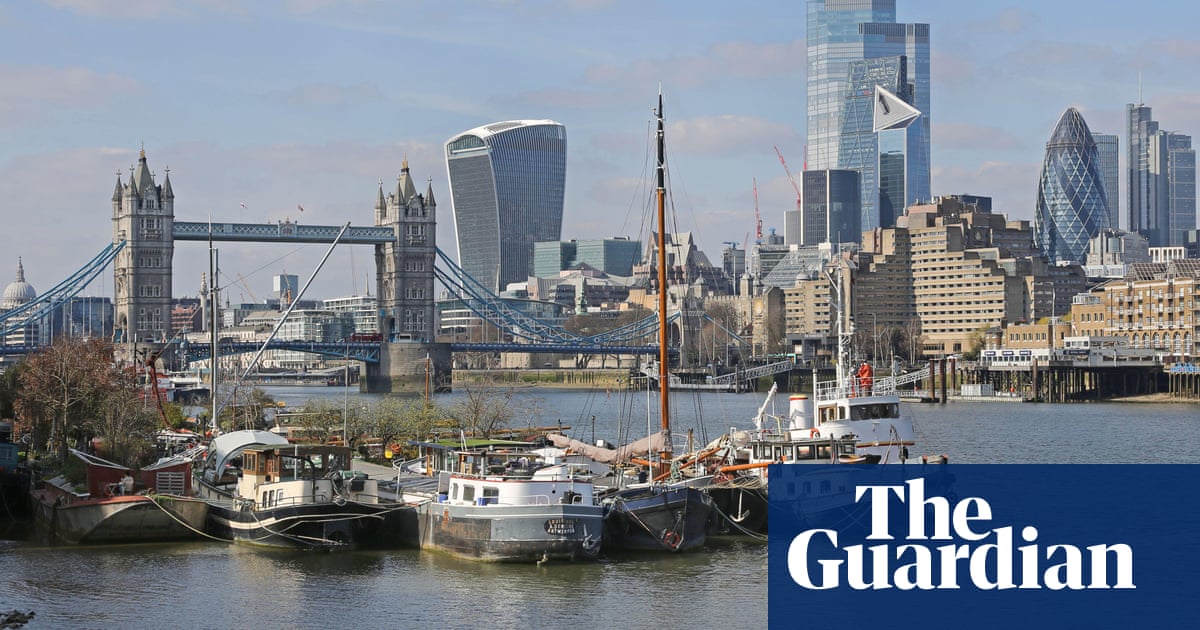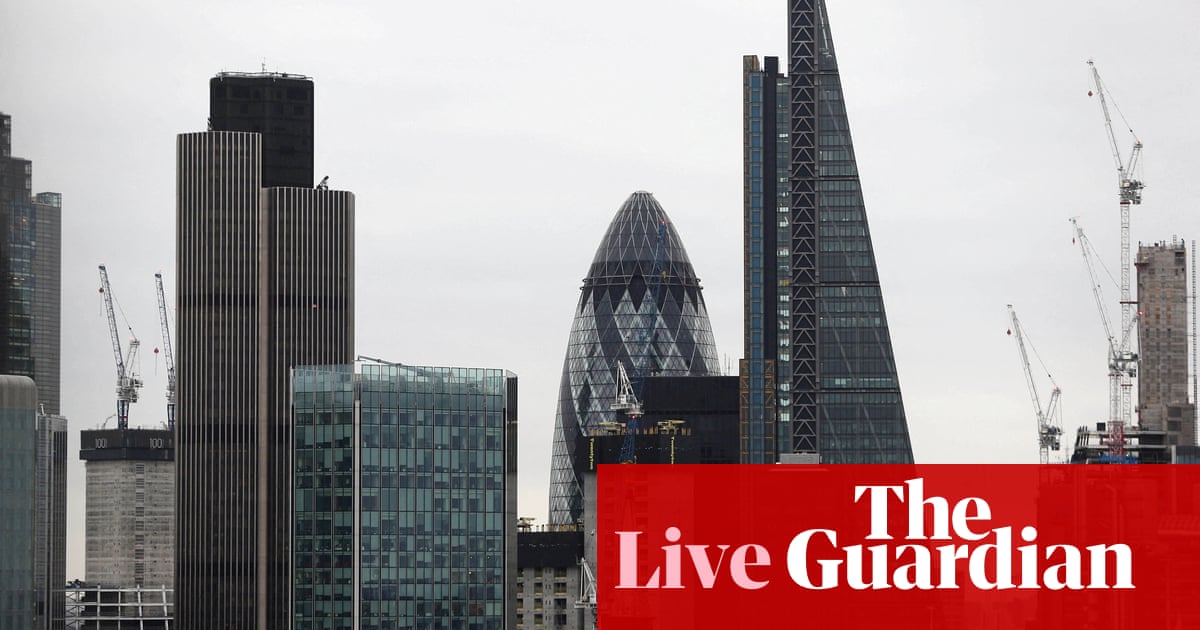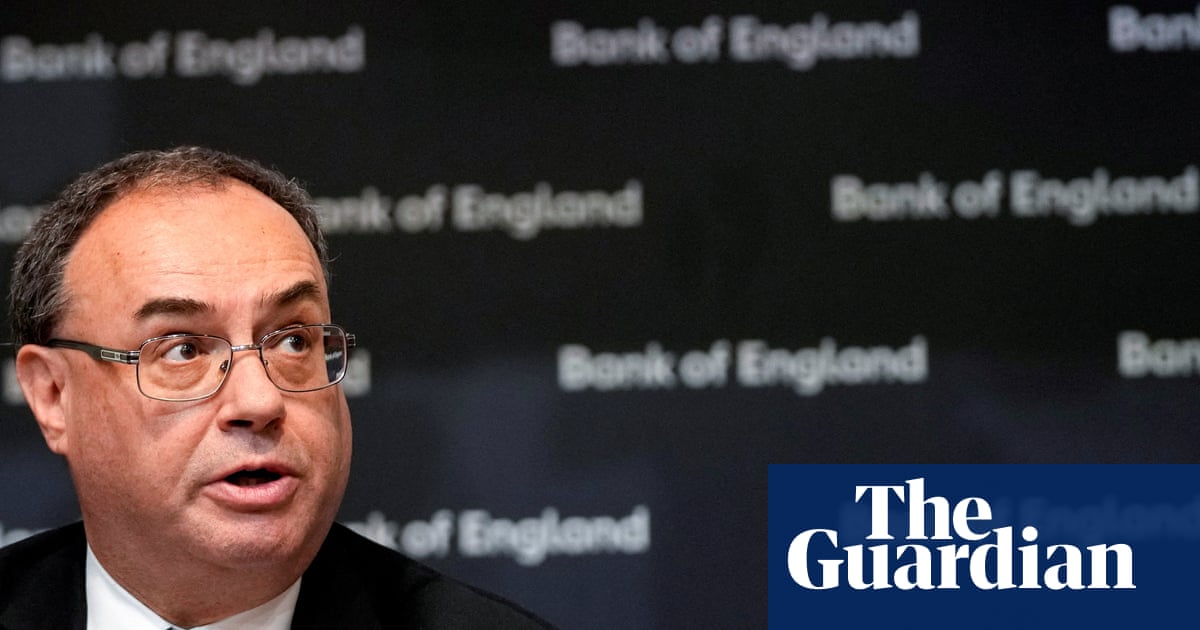
Britain’s recovery from the Covid-19 pandemic has been even weaker than originally believed and is the only member of the G7 group of leading industrial countries where output is still below its pre-crisis level.
The Office for National Statistics said the UK economy contracted by 0.3% in the three months to September – compared with an original estimate of a 0.2% decline. The ONS also revised down growth in every quarter stretching back to the third quarter of 2021.
As a result, the UK’s gross domestic product is now estimated to be 0.8% lower in the third quarter of 2022 than in the final three months of 2019 – the period immediately before the start of the disruption caused by Covid.
Previously, the ONS had estimated the UK was operating 0.4% below its pre-pandemic level, and according to the latest data it is now the only G7 country that has yet to recover ground lost when the global economy was locked down in 2020.
Of the other G7 members, GDP is 4.3% above levels in late 2019 in the US, and higher by 2.7% in Canada, 1.8% in Italy, 1.1% in France, 0.9% in Japan and 0.3% in Germany.
Gabriella Dickens, UK analyst at Pantheon Macro, said the UK’s underperformance largely reflected weakness in households’ real spending, which was 3.2% lower in the third quarter of 2022 than in the final three months of 2019, compared with an average increase of 1.6% across the other G7 economies.
“Households’ spending has been relatively subdued in Britain due to the comparatively muted recovery in employment, larger price increases, and the fact that households in Britain have been less willing to reduce their saving rate than those overseas,” said Dickens.
A breakdown of the ONS national accounts release showed a sharp rise in the UK household savings rate in the three months to September, an indication consumers were taking precautionary measures to bolster their defences against an expected recession.
The Bank of England believes the contraction of the economy in the third quarter marks the start of a prolonged recession that will last for the whole of 2024. The chancellor, Jeremy Hunt, is planning measures in his budget to boost growth but believes the looming recession will be less severe than those in the past.
Darren Morgan, the ONS director of economic statistics, said: “Our revised figures show the economy performed slightly less well over the last year than we previously estimated, with manufacturing and electricity generation notably weaker.
“Household incomes continued to fall in real terms, albeit at a slower rate than in the previous two quarters, while – taking account of inflation – household spending fell for the first time since the final Covid-19 lockdown in the spring of 2021.”
Martin Beck, the chief economic adviser to the EY Item Club, said: “Quarter three’s fall in GDP is unlikely to prove a one-off. Retail weakness, a poor set of PMIs [purchasing managers’ indices] and disruption from industrial action all point to the economy likely contracting again in fourth quarter.”
Beck said he expected the recession to last for the first half of next year as high inflation affected household spending power and tighter monetary and fiscal policy weighed on activity.
“That said, the economy is not out of supports. Households have room to save a smaller share of incomes, and on some measures, they have yet to dip into the £200bn-plus of excess savings accumulated during the Covid pandemic. Consumer spending is therefore unlikely to fall to the same extent as real incomes. And falling inflation over the course of next year offers hope of a return to growth later in 2023.”












